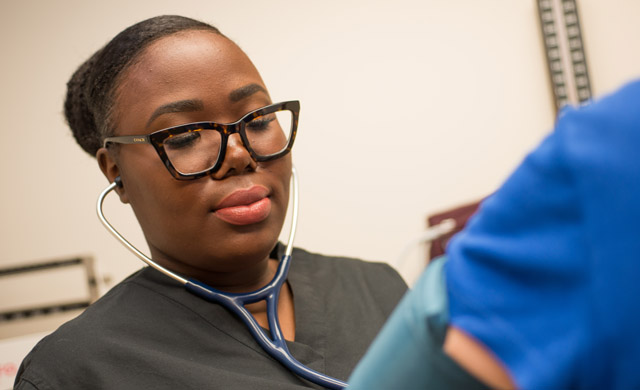
Dr. Matican’s goal is to help you understand what you can do to care for your heart. This starts with carefully testing and screening to make an accurate diagnosis.
Ambulatory Blood Pressure Monitoring
For this test, you wear a special blood pressure cuff for a full 24 hours. It takes a reading twice an hour while you go about your normal routine. Some patients can have high blood pressure readings while at a doctor’s office but normal ones in their own environment.
Echocardiogram
Also called an “echo,” this test is done to check how the valves and chambers of your heart are working. The test can also reveal the size of the heart and the thickness and movement of the heart wall. During an echocardiogram, a health care provider — typically a radiographer or sonographer — uses high-frequency sound waves (ultrasound) to create a moving picture of your heart. Echocardiograms are painless and noninvasive.
Exercise Echocardiogram
This exam is similar to a standard echocardiogram, with an added phase of exercise. You walk on a treadmill or ride a stationary bicycle while your heart is monitored. We compare the results from your heart at rest and during exercise to diagnose conditions such as exercise-caused pulmonary hypertension.
Exercise Stress Test
During this test — sometimes known as a treadmill test, exercise cardiac stress test, or ECST — sensors are placed on your chest to record your heart as you exercise on a treadmill or stationary bike. We monitor your heart’s rate and electrical activity, your breathing and blood pressure. We also note any symptoms you may experience to look for indications of coronary artery disease and angina (chest pain caused by a shortage of oxygen reaching the heart muscle).
Holter Monitoring or Ambulatory EKG
We use this test to record your heart’s electrical activity throughout the day. Unlike a regular EKG, which shows your heart’s activity at one moment in time, an ambulatory EKG shows us how your heart functions over a longer period of time and while you’re going about your daily routine.
During the test you wear a Holter or mobile cardiac telemetry (MCT) monitor; these are portable devices with sensors that attach to your skin.
Nuclear Stress Test (Pharmacological Nuclear Stress Test)
In order to give us a better view of your cardiovascular system, a provider will deliver a small amount of radioactive dye into a vein for this test. Then a special camera detects the radiation and produces computer images of your heart that show blood flow.
Like an exercise stress test, this is a diagnostic tool that helps our physicians spot signs of heart conditions such as coronary artery disease (CAD).